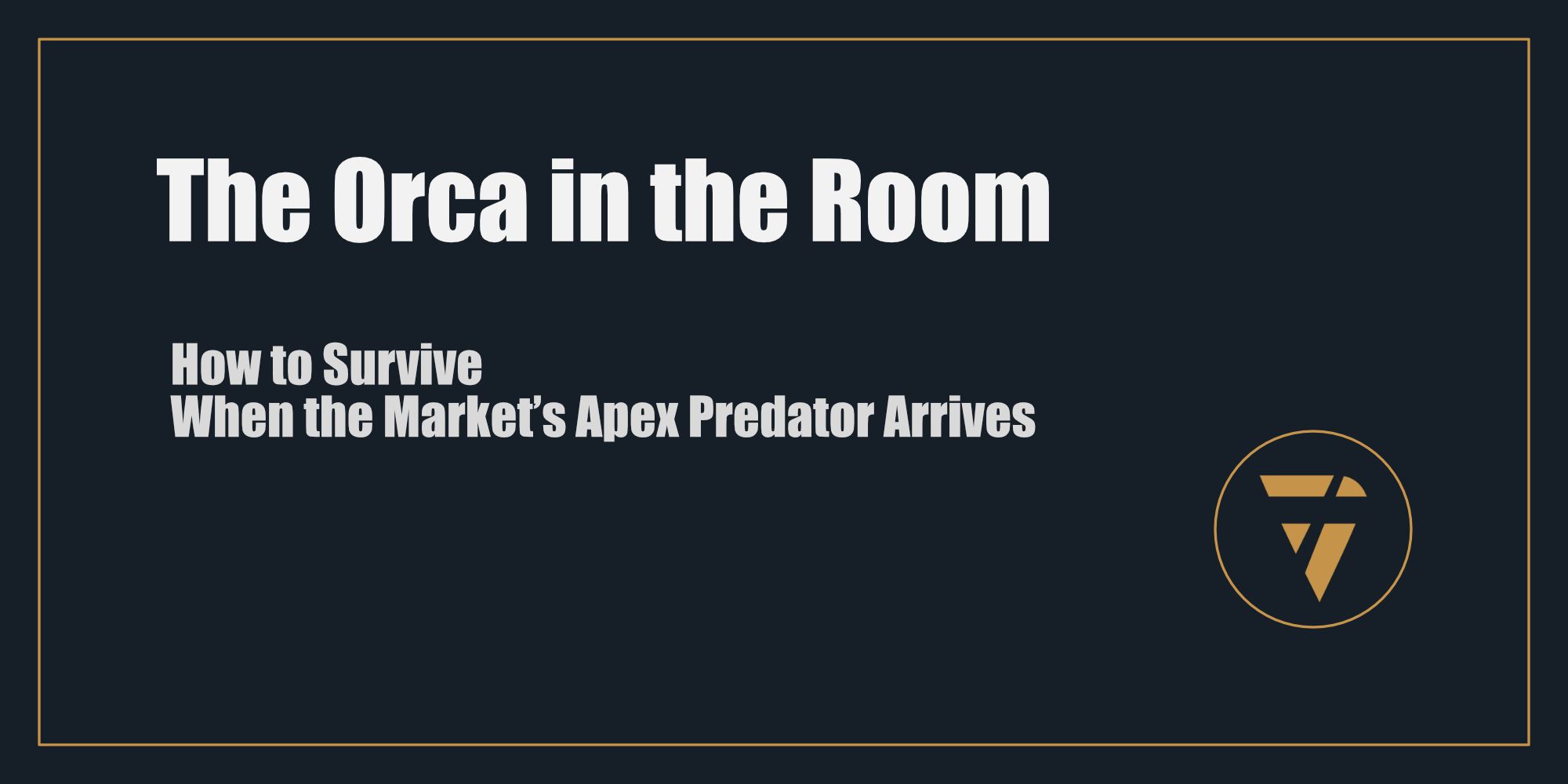The Orca in the Room
How to Survive When the Market’s Apex Predator Arrives

There’s a certain arrogance in assuming the game is always played by the rules you know. Then an orca shows up. Efficient, predatory, and utterly uninterested in how things used to work. The whales, fat and slow, don’t stand a chance. Do you?
Orcas move into the Arctic
But their study says that could have "severe consequences" for potential prey whales such as belugas, narwhals and bowheads, that lead researcher Colin Garroway called "slow, chubby and delicious."
Here’s the problem: markets, like ecosystems, are rarely static, but we behave as though they are. We build processes, products, and partnerships to suit what we think is permanent. But when the environment shifts, or worse, when a predator enters, it’s not the strongest or biggest who survive. It’s the most adaptable.
Orcas don’t waste energy. They leverage intelligence, co-ordination, and focus to turn inefficiency into opportunity. If your business were a whale, how long would it last?
The Problem: Markets Reward Motion, Not Mass
Business success breeds a dangerous comfort. Systems bloat, decision-making slows, and leaders mistake momentum for security. But when a disruptor enters, a competitor with precision, agility, and ruthlessness, it’s the comfortable ones who lose first.
Ask yourself:
- Where has your business grown too slow to pivot?
- What vulnerabilities are obvious to an outsider, but invisible to you?
- How would your clients respond if a faster, leaner alternative arrived?
You’re probably coasting somewhere. And coasting, in a disrupted market, is suicide.
The Insight: Adaptation Beats Scale
Orcas don’t care about the size of their prey. They care about leverage. A pod of orcas will isolate a whale, exploit its limitations, and win because they work smarter, not harder. Businesses can do the same, provided they’re willing to adapt to their environment instead of clinging to past advantages.
Lessons from nature:
- Know the Waters You Swim In: The Arctic is no place for ignorance. Similarly, your market shifts daily. If you don’t know where the currents are heading, you’ll be caught off guard.
- Leverage the Pack: An orca’s strength lies in its pod. Build alliances, not out of desperation, but with deliberate strategy to amplify your strengths.
- Exploit the Inefficient: Like whales with limited mobility, legacy businesses rely on outdated models. Be the predator who identifies, and attacks, the gaps they leave.
Action Plan: Becoming the Predator
- Audit Your Vulnerabilities
If you were your own competition, where would you strike? Be brutal. Identify the inefficiencies, arrogance, or blind spots that make your business easy prey. - Simplify to Strengthen
Big businesses often collapse under their own weight. Strip away unnecessary layers, teams, processes, and offerings, that slow you down. - Think Like the Orca
Don’t just match your competition. Hunt them. What advantages do they assume you don’t have? Acquire them. What strengths do they underestimate? Double down. - Partner Strategically
Orcas don’t hunt alone. The right collaboration can be a force multiplier, turning potential threats into shared victories.
Remember when Amazon entered the grocery market? They didn’t aim to match the margins of traditional stores—they dismantled them. Whole Foods became the bait. Logistics became the weapon. The incumbents? Stranded, like whales gasping for relevance.
Takeaways: What the Orca Knows
- Being “good enough” is never good enough. Predators thrive by identifying and attacking mediocrity.
- Scale doesn’t matter if it slows you down. A streamlined business is harder to catch, and harder to compete against.
- Every market has prey and predators. Know which one you are, or you’ll find out the hard way.
Reflection and Engagement:
If a predator entered your market tomorrow, would you adapt fast enough to survive? More importantly, could you become the predator instead? Let’s talk about how to position yourself not as the hunted, but as the hunter.
Want to think like the orca? Subscribe for more brutally honest insights. Survival isn’t optional. It’s strategic.
This Substack is reader-supported. To receive new posts and support my work, consider becoming a free or paid subscriber.
This is what I’m working on. Tell me what you think, I enjoy the conversation! Subscribe and follow the work in real time.
Thanks!
B
PS -





